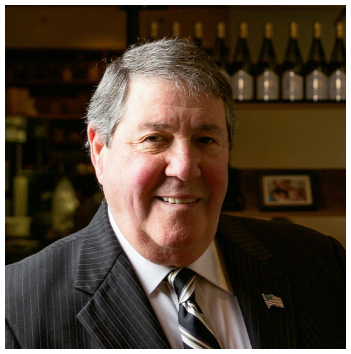When I established my business, I was convinced that multi-lineselling was the key to growing the company because it solved theprospecting issue. I had evolved my marketing strategies to supportcross-selling, and I could acquire new customers in so manydifferent ways: Once I had the customer and established therelationship, it was just a matter of time to work on the coveragethat they had placed elsewhere or now needed as their ownbusinesses and families grew.
|In the beginning, I often took the opportunity to hand-deliveran insurance policy or even an endorsement. This became a way toset up a future time to meet and review clients' insurance needs.The customer was impressed that I delivered something in person,and was now prepared for our next meeting to discuss othercoverage.
|
Two of the biggest sales we ever made amounted to total premiumsof $1.4 million and $1.8 million, and originated with a small,local, personal lines customer generating annual commissions ofabout $400. (Many agents never would even have entertained writingthis account.) The customer had become the president of one of thelargest independent beverage distributor associations and invitedus to submit a proposal. We made the sale. The next year we werereferred to another association, and were again successful. Bothcustomers remained with us for several years until the associationswere disbanded. Consider this: $3.2 million of new premium, fromone small personal lines customer!
|The remarkable success we enjoyed building our agency couldnever have been achieved without the basic philosophy that we werea sales organization fiercely committed to diversity throughmulti-line selling.
|The question is: 'Multi-line selling—is it really possible foran insurance producer or an independent agent or broker to sellcommercial and personal Property & Casualty, Life, A&H,Employee Group Benefits, worksite voluntary products, retirementplans, investments, and other financial products and services—andlive to tell about it?” The answer is Yes. And it can be donesuccessfully.
|There is never a prospecting problem if your sales activitiesare always focused on multi-line selling, because 80% of your newbusiness will come from account rounding and cross-selling toexisting customers and referrals.
|CONCERNS & REALITIES
|So what are the excuses that people use to not embracemulti-line selling?
|1. CONCERN: “I'm too busy handling mycustomers, staff, carriers, etc., to have the time to learn andbecome licensed in all the different areas.”
|REALITY: Commit to delegating most of thosetasks on which you spend an excessive amount of time. However, whatshould never be delegated is your responsibility as a leader tocreate a business vision and establish a mission.
||
|
(Shutterstock/VGstockstudio)
||
2. CONCERN: “I can't have expertise in everyinsurance or financial product or service.”
|REALITY: True, but you can become licensed andadd staff who have special skills and expertise so that thecustomer's needs are met by the organization, not by a singleindividual. For example, I've sold a ton of different policies overmy many years in the business, but I haven't rated a single policymyself since I obtained my P&C license in the '60s. Does thechairman of General Motors have to know how to do a brake job?
|3. CONCERN: “We have to focus on building ourP&C book of business to be profitable, grow and satisfy ouragency companies. There aren't enough commissions inLife/A&H/personal, etc., to make it worthwhile.”
|REALITY: Building an insurance agency with abalanced book of business that generates revenue from diversifiedsources leads to more rapid and predictable growth and serves theagency well during the underwriting cycles and economic ups anddowns. It also gives you the chance to base your annual planning onthose areas that offer the best profit results. (You do annualplanning, don't you?)
|4. CONCERN: “We can't make money on smallcommercial accounts. We need to focus only on Commercial P&Caccounts that generate $5 million, $10 million, $25 million or morein premiums.”
|REALITY: Yes, you can make money on smallcommercial accounts if you establish a minimum revenue thresholdand cross-sell personal & Life and A&H products.
||
|
(Shutterstock/wk1003mike)
||
5. CONCERN: “We can't make money in personalP&C lines of business,” or “Our producers won't sell personallines.”
|REALITY: Yes, you can. You will likely findthat some of the commercial customers with the largest commissionscame from some of the smallest personal lines customers who ownbusinesses or who have many business relationships. It's importantto establish revenue thresholds for personal lines.
|6. CONCERN: “I don't have the money to hire andfinance producers for each specific area, nor the staff to supportthem and to service the customer.”
|REALITY: Producers and staff should beencouraged to learn to sell and service multi-lines. True, it takestime and commitment to hire and train the best people you can find,but it will pay off. If you have a good business plan and show thatyou are growing, it's a lot easier to borrow money from traditionallending sources. You also can partner with other professionals likeregistered investment advisers, benefits consultants and outsidebrokers.
||
Next page: A look at the rationale for multi-lineselling from the perspectives of the agent or broker, the customerand employees.
||
|
(Shutterstock/aslysun)
||
CLEAR ADVANTAGES
|Let's look at the rationale for multi-line selling from severalperspectives:
|The Agent or Broker:
- Eliminates prospecting issues. Approximately 80% of newbusiness sales are made to existing customers, with the opportunityto grow revenues faster because of additional business from thesame customer through account-rounding.
- Second, multi-line selling lowers acquisition costs. In manycases, you'll be marketing to a few customers who buy moreproducts.
- Multi-line selling also increases customer retention. The morepolicies a customer has with the agency, the greater theretention—our experience showed the average retention for amulti-line customer was seven years—and the harder it will be forthe customer to find another agency with similar capabilities.
- And finally, multi-line selling develops a more proficientstaff that adopts the sales culture of the agency, and who canhandle more lines of business, especially if their efforts arerewarded by integrating cross-selling with their compensation.
|

|
(Shutterstock/robert-kneschke)
||
The Customer:
- Ease of doing business by having all of their business in oneplace and often speaking with the same one or two customer servicereps who really get to know them.
- Multi-line selling builds a long-term relationship, whichincreases retention. Price is often secondary if the customerperceives a real value in the relationship, and customers are morelikely to refer friends and family who are seeking products thatthey know the agency offers.
Employees:
- Employees like working in an environment that has a culture andphilosophy they can embrace and that keeps them focused andenergized.
- Most employees appreciate that opportunities to learn otherlines of business offers them a better career path to grow anddevelop skills in more areas, which increases their value to thecompany. Additionally, incentives to earn bonus compensation andrewards through opportunities for account rounding andcross-selling are a prime motivator.
- While times may be different today and the insurance businesscontinues to evolve, new opportunities present themselves to thosewho can recognize them and are willing to try hard to besuccessful. For me it was the vision and commitment todiversification by creating several sources of revenue for theagency through the process of multi-line selling.
Barry Seigerman ([email protected]) founded TheSeigerman Agency in 1975 in Long Island, N.Y., as a full-service,multi-line agency and served as chairman and CEO ofSeigerman-Mulvey Co. Inc. until Bank of Smithtown (N.Y.) InsuranceAgents and Brokers Inc. acquired the agency in 2004—and he stayedon as president and CEO through 2007. That group, in turn, wasacquired by People's United Bank in 2010. Now he's a producer forPeople's United Insurance Agency, the latest chapter in a very longbook of business he's built through the simple power of cultivatingrelationships.
Want to continue reading?
Become a Free PropertyCasualty360 Digital Reader
Your access to unlimited PropertyCasualty360 content isn’t changing.
Once you are an ALM digital member, you’ll receive:
- All PropertyCasualty360.com news coverage, best practices, and in-depth analysis.
- Educational webcasts, resources from industry leaders, and informative newsletters.
- Other award-winning websites including BenefitsPRO.com and ThinkAdvisor.com.
Already have an account? Sign In
© 2024 ALM Global, LLC, All Rights Reserved. Request academic re-use from www.copyright.com. All other uses, submit a request to [email protected]. For more information visit Asset & Logo Licensing.








